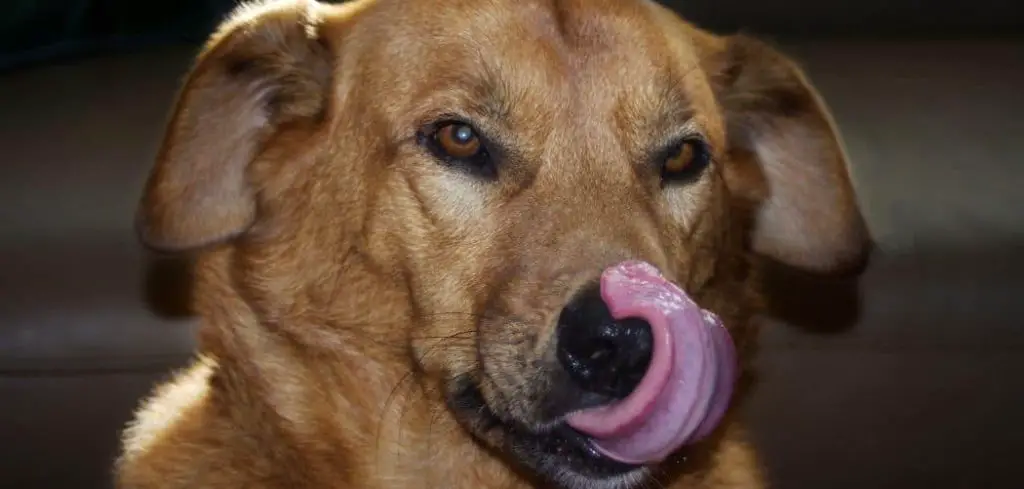If your dog refuses food throughout the day but eats normally at night, it can be confusing and concerning.
A change in eating patterns often makes owners wonder whether their dog is being picky, anxious, or facing a health issue.
We outline the common reasons for a dog only eating at night, what you can do at home, and when to seek veterinary help.
Dog Only Eats at Night — Why It Happens
When a dog only eats at night, the cause is often related to routine, anxiety, environment, or medical issues. Some dogs are naturally more comfortable eating after the household has quieted down, while others may avoid food in the daytime due to stress or distractions.
Temperature, digestion patterns, and even pain or nausea can also influence when they feel comfortable eating.

Dog Only Eats at Night: Common Causes
Daytime Stress or Anxiety
Some dogs feel too anxious or distracted during the day to eat. Noise from children, other pets, or household activity can make them avoid food until nighttime, when things are calmer.
This behavior is more common in nervous or easily startled dogs.
Learned Feeding Habits
Dogs thrive on routine. If they’ve become used to receiving food at night—whether because you fed them late once or because their daily schedule changed—they may begin to hold out until evening. Over time, this pattern becomes reinforced.
Cooler Evening Temperatures
Dogs may be less interested in eating during hot daytime hours, especially in warmer climates or during summer.
At night, when it’s cooler, they feel more comfortable eating. This is particularly common in dogs with thick coats or breeds prone to overheating.
Medical Issues Affecting Appetite
Some health problems can make dogs reluctant to eat during the day. Nausea, acid reflux, or dental pain may be worse at certain times, causing them to delay eating until they feel better.
Gastrointestinal discomfort often fluctuates, which may explain why appetite improves at night.
Attention-Seeking Behavior
Dogs may hold off on eating until night if that’s when they get more attention from their owners.
If you spend more time engaging with your dog in the evening, they may link dinnertime with closeness, leading to a preference for eating at night.
Feeding Environment
The location or type of bowl can influence feeding habits. Some dogs dislike eating in busy areas during the day, while others may find noisy metal bowls off-putting.
A calm and quiet nighttime environment may make them more willing to eat.
What to Do If Your Dog Only Eats at Night
If your dog is otherwise healthy, try adjusting their feeding environment and schedule. Offer meals in a quiet location with minimal distractions, and avoid free-feeding throughout the day.
Instead, establish set meal times and pick up the food after 15–20 minutes if your dog doesn’t eat. You can also try feeding smaller portions more frequently to encourage regular eating.
Make sure water is always available and consider switching bowls if your dog seems hesitant. Consistency is important—over time, most dogs adapt to daytime feeding once the routine is reinforced.
When to Call or Visit Your Vet
You should contact your veterinarian if your dog consistently refuses food until night and shows signs of weight loss, lethargy, vomiting, or dental discomfort.
A sudden change in eating patterns can signal underlying illness, especially in puppies, senior dogs, or those with pre-existing health conditions.
Persistent appetite changes should not be ignored, as they can point to gastrointestinal issues, dental disease, or metabolic problems.
Your vet may recommend diagnostic tests to rule out medical causes and provide peace of mind.
Read more: Dog Only Eats When Hand Fed (Why some dogs need extra encouragement)
Read more: Dog Only Wants Human Food (How to handle picky eating)
Read more: Dog Not Eating but Drinking Water (What it means)
Key Takeaway
If your dog only eats at night, it may be due to anxiety, environment, or a learned routine, but medical issues can also play a role.
Creating a calm, consistent feeding schedule and adjusting your dog’s environment can often resolve the problem.
If the behavior continues or is accompanied by other concerning symptoms, a veterinary check is the safest way to ensure your dog’s health and well-being.
